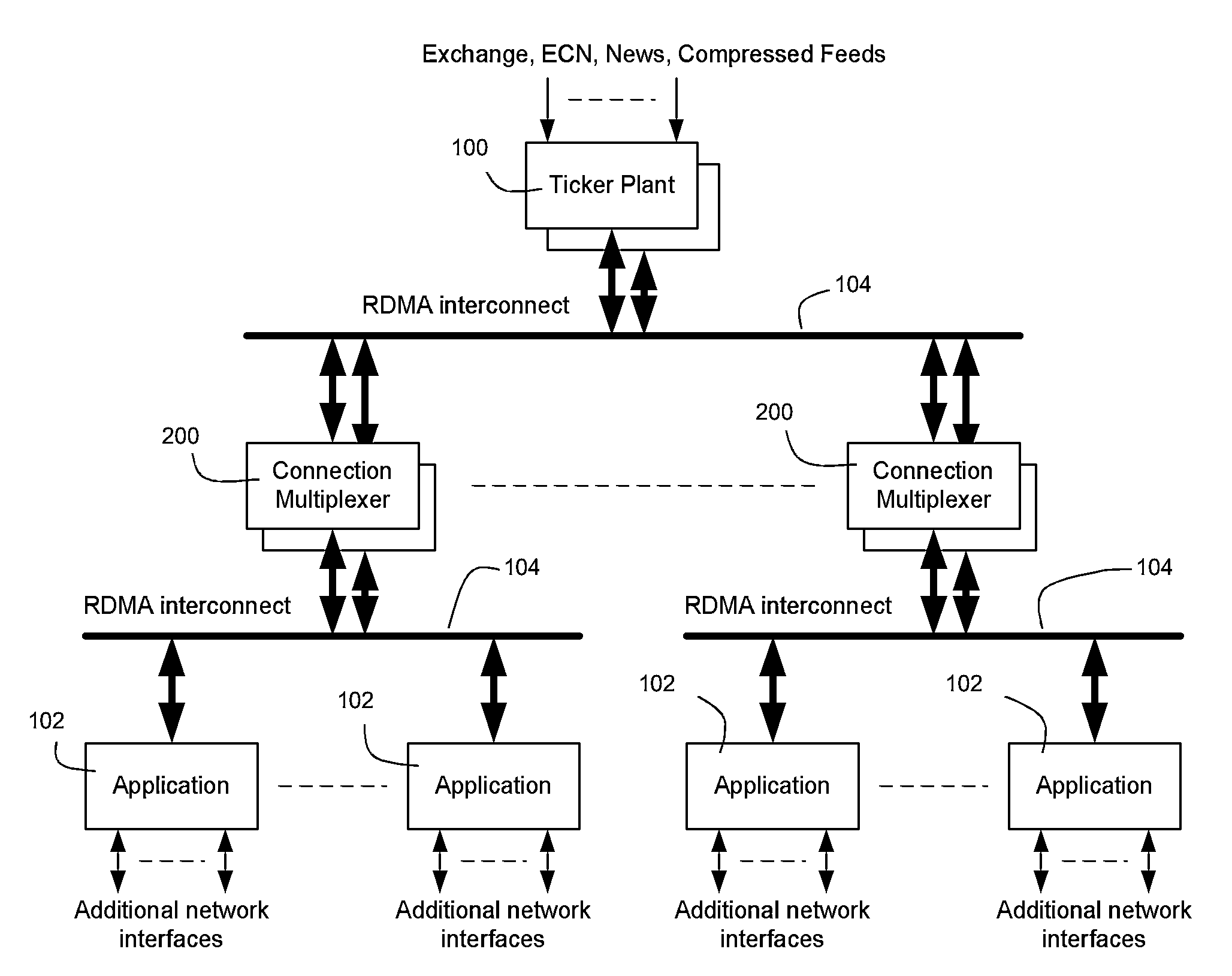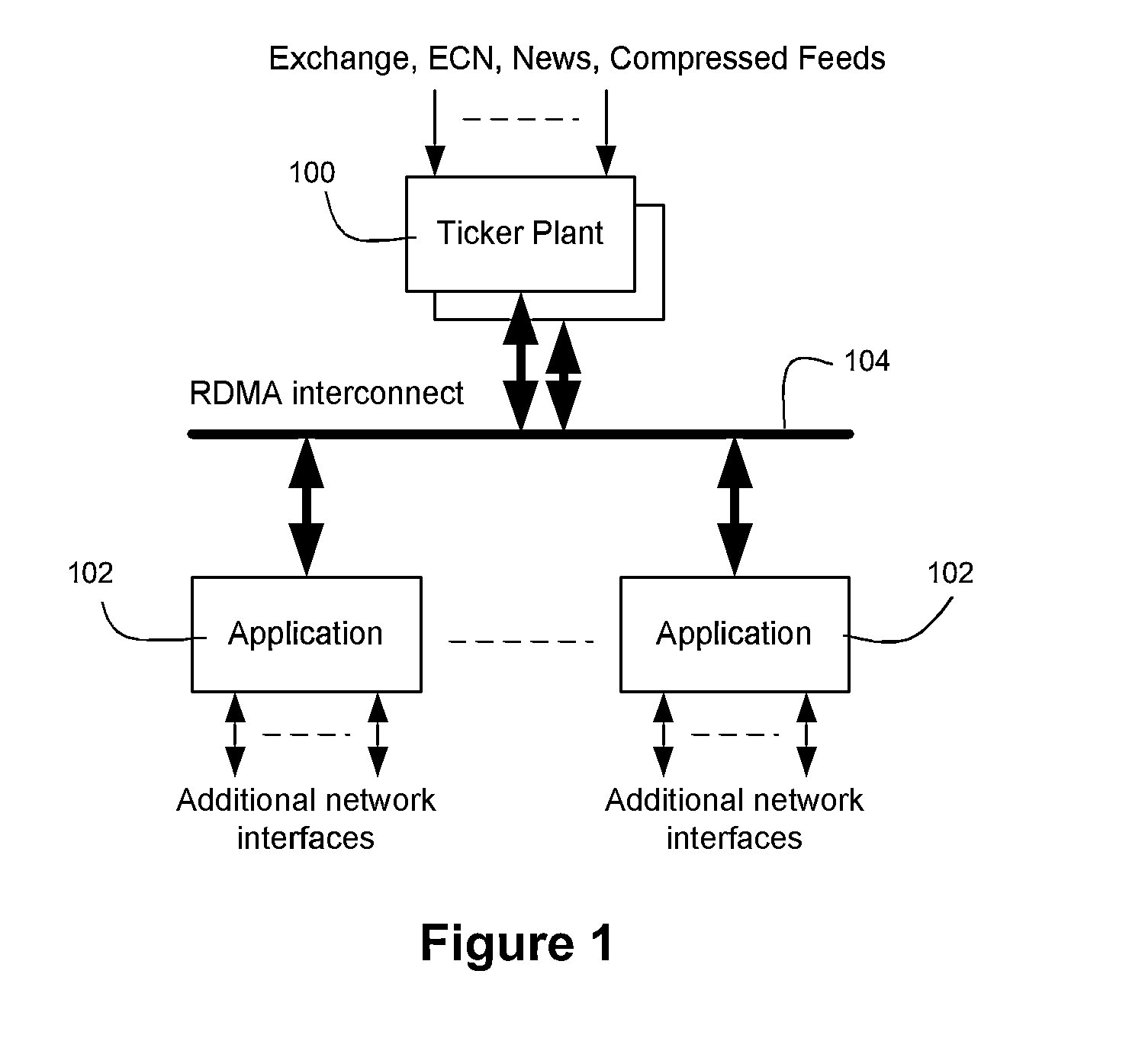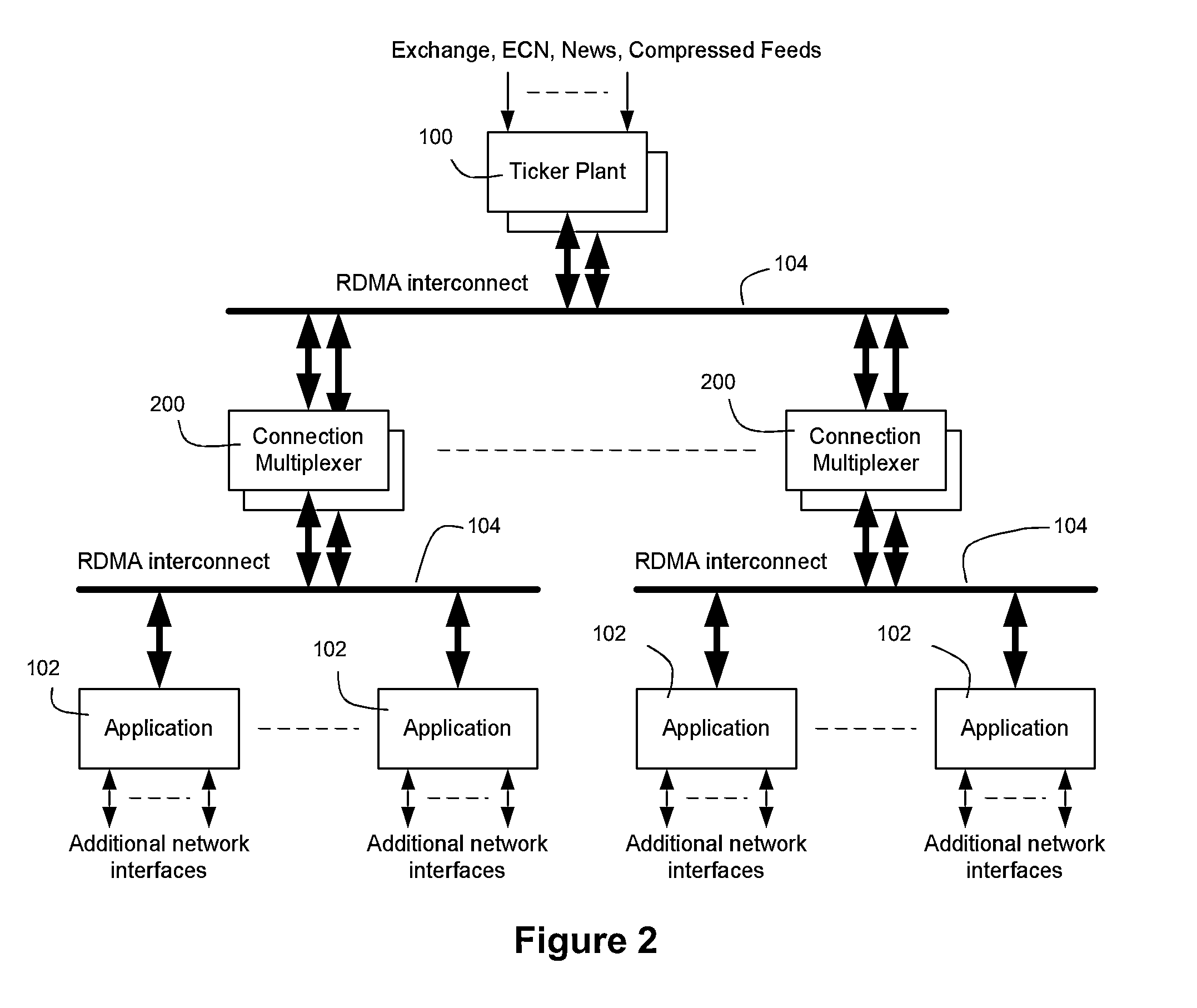Method and Apparatus for Low Latency Data Distribution
a data distribution and low latency technology, applied in the direction of interprogram communication, program control, multi-programming arrangements, etc., can solve the problems of reducing the number of messages that must be transferred, particularly acute in connection with real-time data, and negative characteristics
- Summary
- Abstract
- Description
- Claims
- Application Information
AI Technical Summary
Benefits of technology
Problems solved by technology
Method used
Image
Examples
Embodiment Construction
[0049]FIG. 1 shows a diagram of a “direct connection” distribution architecture for financial market data distribution. In this exemplary figure, the ticker plant 100 is the data producer, distributing normalized, enriched, and filtered market data to subscribing applications 102.
[0050]Exemplary technology that can be employed for such a ticker plant 100 can be found in U.S. Pat. Nos. 7,921,046 and 7,840,482, the following published patent applications: U.S. Pat. App. Pub. 2009 / 0182683, U.S. Pat. App. Pub. 2011 / 0040701, U.S. Pat. App. Pub. 2011 / 0178911, U.S. Pat. App. Pub. 2011 / 0178912, U.S. Pat. App. Pub. 2011 / 0178917, U.S. Pat. App. Pub. 2011 / 0178918, U.S. Pat. App. Pub. 2011 / 0178919, U.S. Pat. App. Pub. 2011 / 0178957, U.S. Pat. App. Pub. 2011 / 0179050, U.S. Pat. App. Pub. 2011 / 0184844, and WO Pub. WO 2010 / 077829, and U.S. patent application Ser. No. 13 / 316,332, entitled “Method and Apparatus for Managing Orders in Financial Markets”, filed Dec. 9, 2011, and published as U.S. patent...
PUM
 Login to View More
Login to View More Abstract
Description
Claims
Application Information
 Login to View More
Login to View More - R&D
- Intellectual Property
- Life Sciences
- Materials
- Tech Scout
- Unparalleled Data Quality
- Higher Quality Content
- 60% Fewer Hallucinations
Browse by: Latest US Patents, China's latest patents, Technical Efficacy Thesaurus, Application Domain, Technology Topic, Popular Technical Reports.
© 2025 PatSnap. All rights reserved.Legal|Privacy policy|Modern Slavery Act Transparency Statement|Sitemap|About US| Contact US: help@patsnap.com



